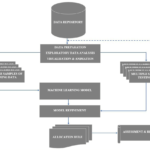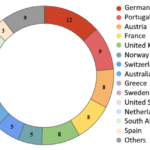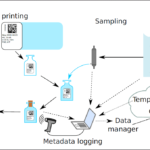

Why the Tonga tsunami arrived much earlier and much larger than expected
The tsunami recorded at distant locations from the Tonga volcanic explosion arrived much earlier and was much larger than expected from an earthquake-generated tsunami. This event caused great difficulty in issuing timely and accurate tsunami warnings for the following three reasons described in the article.
Volunteered rapid disaster monitoring and mapping (VoRDM)
The Kingdom of Tonga and its people are reeling from the violent January 15 eruption of Hunga Tonga-Hunga Ha’apai volcano and the ensuing tsunami. CODATA TG FAIR Data for DRR, China GEO Aerospace Information Research Institute in the Chinese Academy of Sciences (AIR) and Tonkin + Taylors Disaster Risk Resilience team is working hard to map the devastation accurately and smoothly the way for more efficient humanitarian efforts and recovery.
Long-term planning crucial to Tonga’s recovery
As recovery efforts began in Tonga, after the Hunga Tonga-Hunga Ha’apai volcano eruption and the tsunami that followed, the first priority will be to provide immediate relief to communities to save lives and respond to urgent needs. However, successful recovery must also incorporate long-term strategies of building back better and establishing resilience, mitigation, risk reduction and preparedness initiatives.
2021 floods: UN researchers aim to better prepare for climate risks
In July 2021, several European countries, including Germany, Belgium and the Netherlands, were affected by catastrophic floods, causing deaths and widespread damage. According to the latest report from the Intergovernmental Panel on Climate Change (IPCC), such extreme weather events are expected to increase frequency and severity in the coming decades.

A framework for global science in support of risk-informed sustainable development and planetary health
This document takes stock of recent developments in disaster risk science. It provides a compelling set of directions for research and scientific collaboration for a more holistic and collaborative approach to understanding and managing risks. It challenges silos in science and in society and the notion that social, ecological, economic and technological systems can be understood in isolation from one another and advocates for an increased focus on people.
Tsunami risk communication and management: Contemporary gaps and challenges
Very large tsunamis are associated with low probabilities of occurrence. In many parts of the world, these events have usually occurred in a distant time in the past. As a result, there is a low-risk perception and a lack of collective memories, making tsunami risk communication challenging and complex. Furthermore, immense challenges lie ahead as population and risk exposure increase in coastal areas.
UK climate change risk assessment 2022
As required by the Climate Change Act 2008, the UK government has undertaken the third five-year assessment of the risks of climate change in the UK. The risk assessment considers sixty-one UK-wide climate risks and opportunities cutting across multiple sectors of the economy. It prioritises eight risk areas for action, discussed in the document.
Creating resilient futures: Integrating disaster risk reduction, sustainable development goals and climate change adaptation agendas
This book examines a coherence building opportunity between Climate Change Adaptation, the Sustainable Development Goals and Disaster Risk Reduction agendas. Considers opportunities to address global challenges in the context of developing resilience as an integrated development continuum instead of through independent and siloed agendas.

City Resilience Program: Supporting cities in building resilience
This Making Cities Resilient 2030 (MCR2030) webinar session aims to provide in-depth information to help cities, local authorities, and their partners better understand what the City Resilience Program is and how to access its support. It will include information on the type of support provided, the eligibility criteria and the relevant application process.
CREWS workshop on people-centred early warning systems operational procedures
CREWS invite participants to register interest in participating in a 2-hour workshop (in French and English) to discuss CREWS People-Centered Early Warning Systems (EWS) Operational Procedures. The workshop is an opportunity for people with experience of people-centred EWS and design, implementation and monitoring of CREWS projects to share experiences and contribute to finalising.
Pre-Conference Workshops – African kick-off conference for the UN decade of ocean science for sustainable development
The Conference will provide a forum to take stock of the state of ocean science and technology in the region, to deliberate on how ocean science in Africa should be supported and focused on achieving the societal outcomes required by the Decade, and also seek the interest and commitment of the ocean science community to engage in a number of research directions that are essential for sustainable ocean management.
SHEAR Common Ground: Science for humanitarian emergencies and resilience
It is our great pleasure to invite you to join us on February 11th at our SHEAR finale event, in which we will be celebrating our achievements, finding common ground and charting the way forward. We are excited to share and discuss pressing humanitarian-science questions and the outcomes of the SHEAR programme through a high-energy and interactive virtual event.
Artificial intelligence for natural disaster management
This Webinar will explore the main barriers to adopting these disruptive technologies in disaster management and examine the integrated approaches related to machine learning, big data analytics, and AI for supporting the detection, forecasting, and communication of natural hazards disasters. In this context, the Webinar will provide an overview of how AI can be leveraged to enhance modelling across spatiotemporal scales and facilitate effective communication in the event of a natural disaster.
















